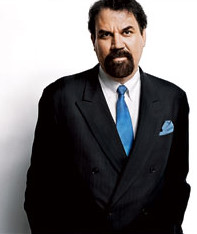In 2001, I presided over the trial of Ahmed Ressam, the confessed Algerian terrorist, for his role in a plot to bomb Los Angeles International Airport. That experience only strengthened my conviction that American courts, guided by the principles of our Constitution, are fully capable of trying suspected terrorists.
As evidence of “the inadequacy of the current approach to terrorism prosecutions,” Judge Mukasey noted that there have been only about three dozen convictions in spite of Al Qaeda’s growing threat. Open prosecutions, he argued, potentially disclose to our enemies methods and sources of intelligence-gathering. Our Constitution does not adequately protect society from “people who have cosmic goals that they are intent on achieving by cataclysmic means,” he wrote.
It is regrettable that so often when our courts are evaluated for their ability to handle terrorism cases, the Constitution is conceived as mere solicitude for criminals. Implicit in this misguided notion is that society’s somehow charitable view toward “ordinary” crimes of murder or rape ought not to extend to terrorists. In fact, the criminal procedure required under our Constitution reflects the reality that law enforcement is not perfect, and that questions of guilt necessarily precede questions of mercy.
Consider the fact that of the 598 people initially detained at Guantánamo Bay in 2002, 267 have been released. It is likely that for a number of the former detainees, there was simply no basis for detention. The American ideal of a just legal system is inconsistent with holding “suspects” for years without trial. [complete article]

 His obvious adversaries are the contracting corporations themselves—especially Halliburton, the giant oil-services conglomerate where Vice President Dick Cheney spent the latter half of the 1990s as C.E.O., and its former subsidiary Kellogg, Brown & Root, now known simply as KBR. But he says his efforts to take on those organizations have earned him another enemy: the United States Department of Justice.
His obvious adversaries are the contracting corporations themselves—especially Halliburton, the giant oil-services conglomerate where Vice President Dick Cheney spent the latter half of the 1990s as C.E.O., and its former subsidiary Kellogg, Brown & Root, now known simply as KBR. But he says his efforts to take on those organizations have earned him another enemy: the United States Department of Justice.